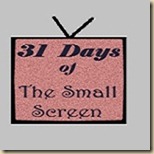 As I’ve said before, you won’t typically find a lot of political or current event type information here on these pages, because I neither feel particularly qualified to discuss those topics, nor am I particularly interested in most of them. However, during this election cycle, I’ve been paying a bit more attention to the news than normal, so I’ve had some thoughts about the media in general, and on television in particular, as that’s where I get most of my news.
As I’ve said before, you won’t typically find a lot of political or current event type information here on these pages, because I neither feel particularly qualified to discuss those topics, nor am I particularly interested in most of them. However, during this election cycle, I’ve been paying a bit more attention to the news than normal, so I’ve had some thoughts about the media in general, and on television in particular, as that’s where I get most of my news.
My son, occupy-minded young man that he is, often complains about the bias and propaganda tendencies of “mainstream media”, though he’ll spend hours watching the Free Speech TV network.
Image courtesy of Stuart Miles at FreeDigitalPhotos.net
I think bias is bias, regardless of what channel you happen to be watching, and I’m not sure that it’s any less propaganda-like just because it happens to be a message with which you agree. However, what I’ve ultimately decided is that for the most part, mainstream media tries to simply present the news without a bias, but I've come to believe that is almost impossible to achieve. Not that they shouldn’t try, of course, it’s just that I’ve reached the point where I don’t really expect it.
The main bias—regardless of whether it's local, national, print, etc.—is simply the stories that a media organization chooses to report. The issues that are getting coverage are pretty much the issues that the public will be focused on and feel more strongly about, whether or not those issues happen to be the most important issues at hand. That's a lot of power.
As an example, think about Pres. Obama's birth certificate and Gov. Romney's tax returns. At this point, in my opinion, there is nothing newsworthy about those issues, as absolutely nothing has changed about the facts involved. And yet, every time some politician/interest group/celebrity brings it up again, the media puts it back in our faces, keeping it an important topic of consideration. They may see that as reporting; I see it as pandering to the lowest common denominator and stirring up trouble. A person’s beliefs on those two topics might weigh in as part of their decision making for choosing a president, but I think it would be unfortunate if all the brouhaha surrounding it caused those issues to be anyone's primary consideration.
Also, I think most of the media should refrain from providing their "opinion", and should stick to reporting facts. As I said, I do think it's about impossible to completely separate out the two, but sometimes there doesn't seem to be much of an attempt made.
Even clearly labeled editorial segments on the local news or in newspapers I think can be a little bit of a problem. I sort of think the people doing editorials should not be the same people writing news stories or anchoring the nightly broadcast; there should be more delineation between facts and opinions, and I think it's hard to make that separation if the same guy moves from reporting the latest details of the campaign trail and then telling you what he thinks about the latest big news topic. The anchors of the two local news broadcasts I watch most often both have editorial segments, and the more I see it, the more it bothers me.
On the other hand, not too long ago, I saw CBS news anchor Scott Pelley on the Letterman show, and I have to say that I was pretty impressed with him. Dave tried multiple times to get him to weigh in with an opinion on several topical items, but he never did. Each time, he would deflect the question about what he personally thought, and respond with more details about the situation at hand, or explain historical parallels, or whatever. I'm sure he has plenty of opinions on everything that he reports, but I appreciated the fact that he opted not to blur the line.
In this day and age, I think just about every media format is feeling the pressure to compete with the immediacy and engagement levels of the Internet. But, where I really think television news can excel is to try to do the one thing that the interactive format of the WWW won’t allow: simply be a trusted source of accurate reporting of the world around us. If the anchors and reporters could remember that we’re counting on them to research and report the news rather than make the news, I think we would all be better off.
